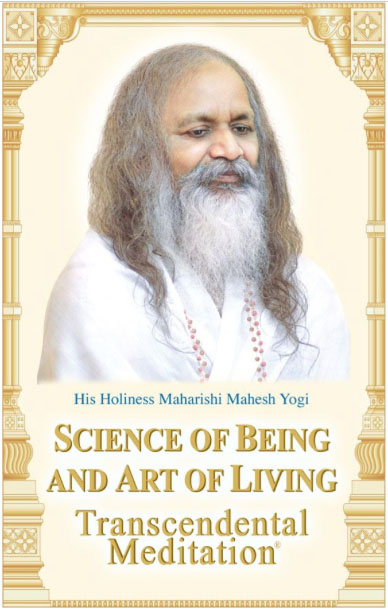931 Transcendental Meditation
I have lately watched Jerry Seinfeld's Comedians in Cars getting Coffee, great show. I like his comedy, in fact I like it a lot. I blogged about it before … but here’s something different. Seinfeld in an interview about meditation; it’s an hour long and it’s very good: Bob Roth "Success Without Stress" on SiriusXM with Jerry Seinfeld.
I’ve been interested in meditation for over thirty years and I am aware that there are in principle two types of meditation. The first type - and there are many meditation techniques with the aim to achieve that - is the sort that we do for tangible benefits like providing less stress and more energy - in this interview it’s Transcendental Meditation TM (Warning: TM is expensive) ... Hugh Jackman says about TM:
"Nothing has ever opened my eyes like Transcendental Meditation has. It makes me calm, happy and well, it gives me some peace and quiet in what's a pretty chaotic life!"
Then there is the second type of meditation, the one I am interested in, which deals with the advancement of consciousness and the striving toward enlightenment (there's no charge for this type of meditation); Jiddu Knishnamurti says about it:
"Meditation is one of the greatest arts in life, and one cannot possibly learn it from anybody. That is the beauty of it. It has no technique; when you learn about yourself, watch yourself, watch the way you walk, how you eat, what you say, the gossip, the hate, the jealousy, if you are aware of all that in yourself, that's part of meditation."
Osho said about meditation:
"When you are not doing anything at all - bodily, mentally - when all activity has ceased … that's what meditation is."
So this video is not about that type of meditation, it is about TM, and Jerry Seinfeld says about it, “it gives me something I love more than anything: Energy.”
This is a great interview, sometimes very funny (how could it not be) but very valuable for anyone who finds that life saps them of energy (do you have little children? Do you run your own business?) and they need more. Watch it.
It’s interesting what Roth says about meditation in companies and schools, he's the director of the David Lynch Foundation. (Wikipedia)
This is a talk with Bob Roth and David Lynch about Roth's book 'Strength in Stillness: The Power of Transcendental Meditation'.
Let me make my position clear here: Roth talks about three types of meditation, including Vipassana and TM. For me, those three are type one of meditation. Type two is the meditation advocated by Krishnamurti, the type I am interested in, where we strive to empty the mind. Within K’s teachings this process is required to create that new world, that revolution he talks about.
Transcendental Meditation is a mental tool to access a part of the mind that encompasses quiet and stillness … like the depth of the ocean, as opposed to the violent waves on the surface. The goal of TM is to potentially experience creativity, bliss, power and energy, as well as pure consciousness, universal love and peace. Another effect promised is that negativity fades: Stress, anxiety, sadness, anger, depression, hate, the need for revenge … they automatically start lifting away.
These attributes are the attraction & the result of all meditations when practiced with consistency. However, in “true” meditation we aim to go further, namely beyond the mind, whether calm or rough … a process that some people (including Maharishi Mahesh Yogi, founder of TM) deem impossible; they say “the mind is like an organ - like the heart - it goes and goes, and it can’t be stopped.”
Krishnamurti at this point introduces the concept of the “Freedom from the Known” (Goodreads) (Bookdepository), where the Known is the content of the mind, with all its good and bad experiences. Only if we go beyond all that stuff - K says - are we able to build a new, a fresh mind … which is our goal.
I wonder if both types of meditation can run parallel in our lives? The meditation I do - when I do sit down and close my eyes, repeating a mantra that was given to me thirty years ago - is similar to TM. I say in my essay MEDITATION 3:
I favor a simple meditation, in the half-lotus pose, accompanied by yoga exercises. While I use a mantra, I aspire to suspend all judgmental thinking. The goal is to let thoughts pass, without getting involved in them; ultimately to stop thinking - to still or empty the mind.
____________________________
This is a link to a sample of the book on Transcendental Meditation by Maharishi Mahesh Yogi:
